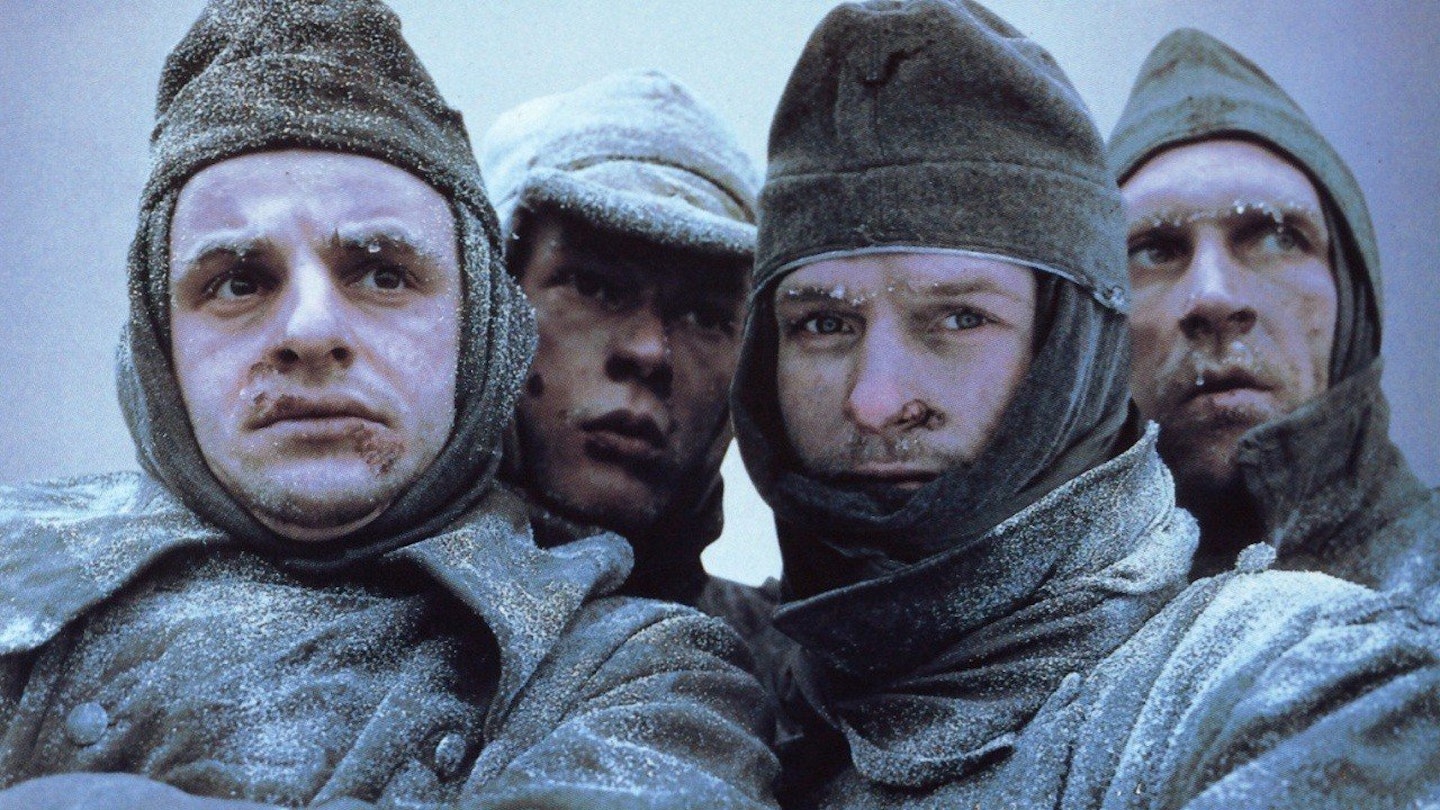Attempting to do a Das Boot on land land, Joseph Vilsmaier becomes the first German feature filmmaker to tackle the doomed invasion of Russia that ultimately proved to be Hitler's downfall. In the winter of 1943-44, one million people died in the brutal, protracted battle for the strategic city on the Volga. Seven hundred thousand of them were Russian men, women and children, who were shot, blown up, beaten to death, or starved in their refusal to surrender.
The first of the film's problems is that it marginalises the Russians, however, inviting us to empathise with a rapidly dwindling battalion of elite German Stormtroopers as they suffer horribly, doing their duty to the Fatherland. Strike two is that the men though sincerely played comprise the familiar combat unit cast list: the aristocratic, idealistic, untried lieutenant (Kretschmann), the coarse, seasoned sergeant (Jochen Nickel), the baby-faced frightened private (Rudolph) and the cynical but brave corporal (Horwitz). Strike three is that in the relentless barrage of gory set pieces it's hard to grasp what the hell is going on, or who is who.
And once the snow piles up, the beards lengthen and the woolly swaddling is on, Hans, Fritz and co. are virtually indistinguishable. Like the battle itself, this drags on rather painfully, punctuated by hideous deaths and some involving, dramatic incidents. However, one surmises that the kind of guys who would most likely get off on the film's arresting images of men severed by machinegun fire or squashed by tanks are those least likely to be happily engaged reading subtitles for more than two hours.

